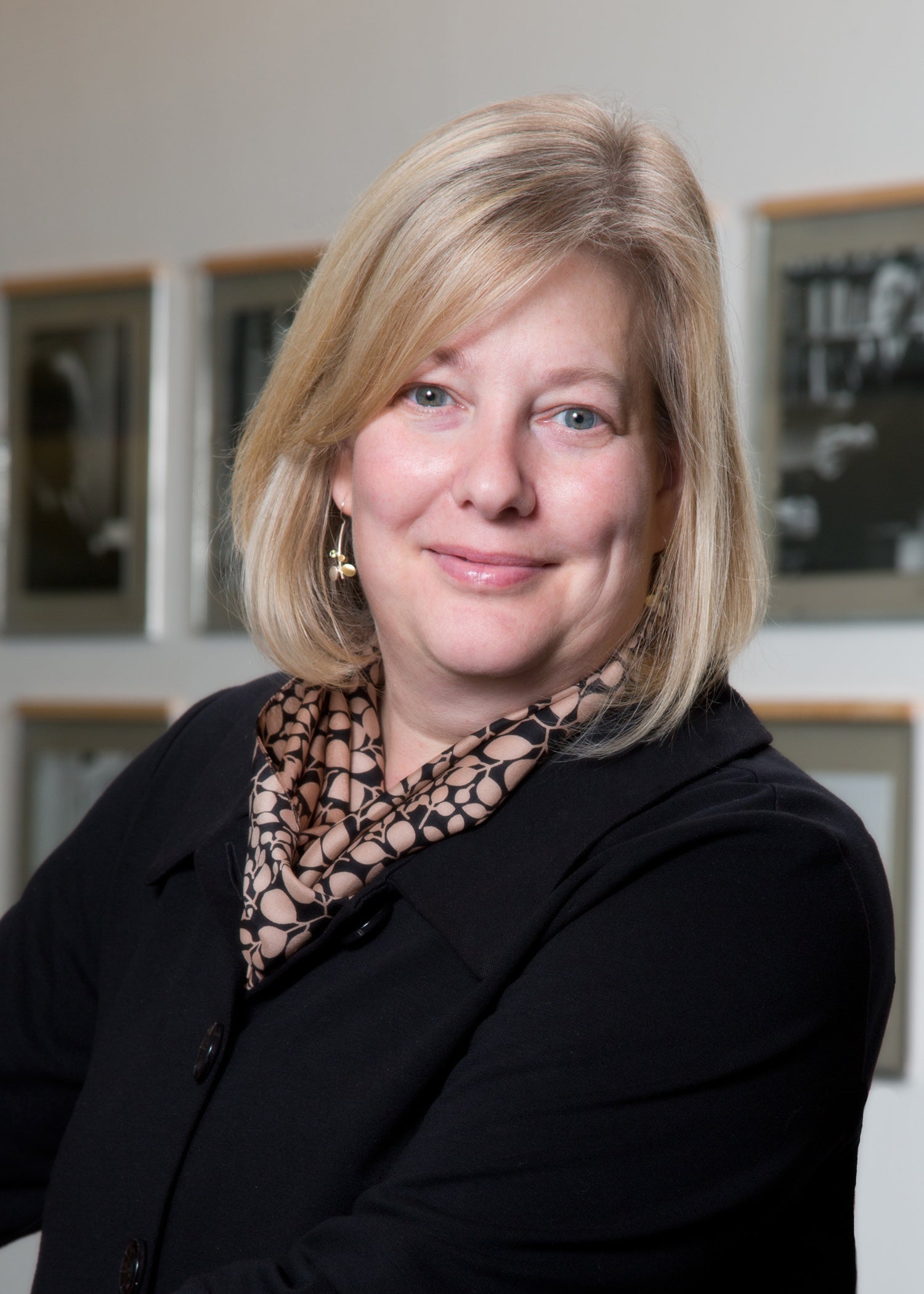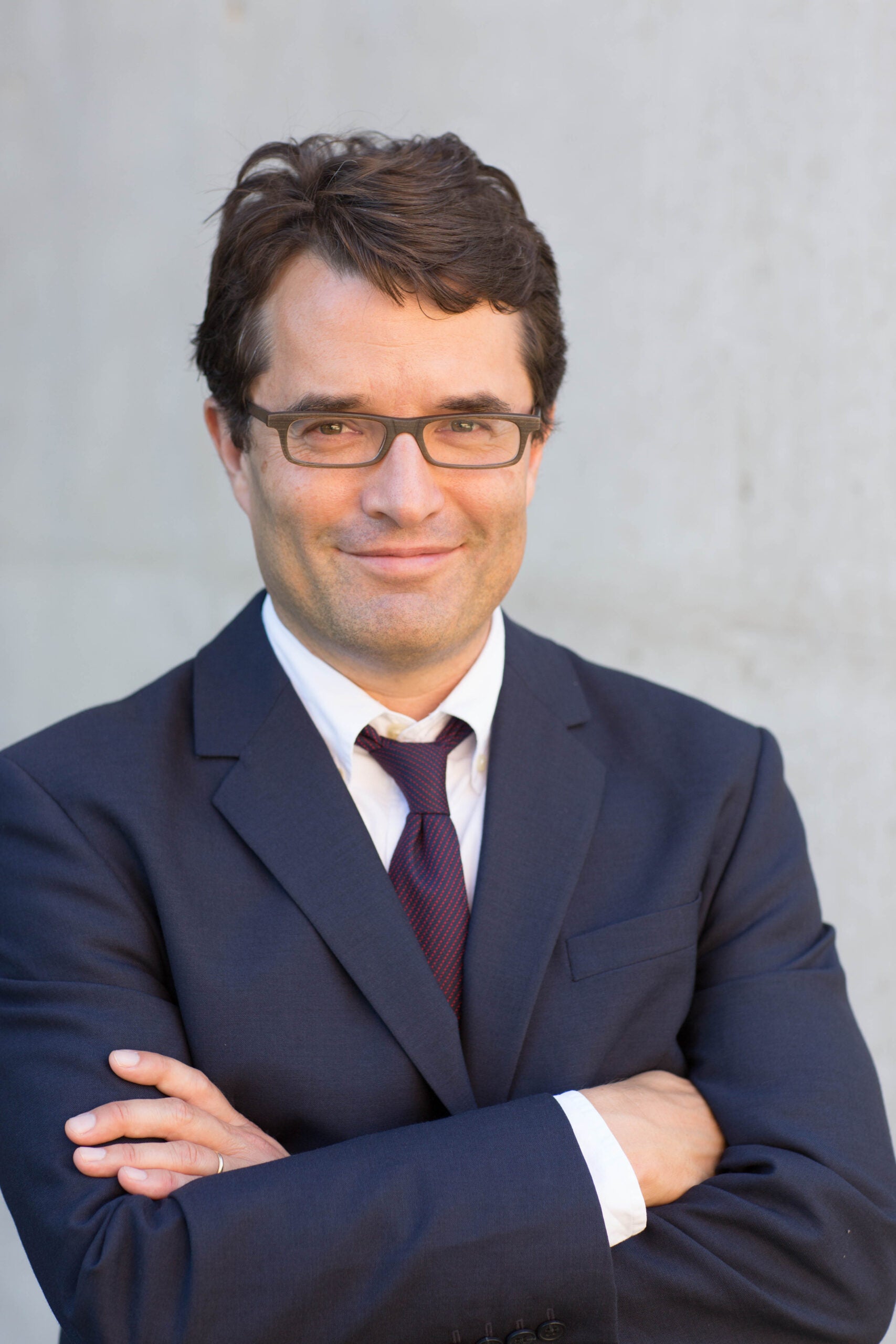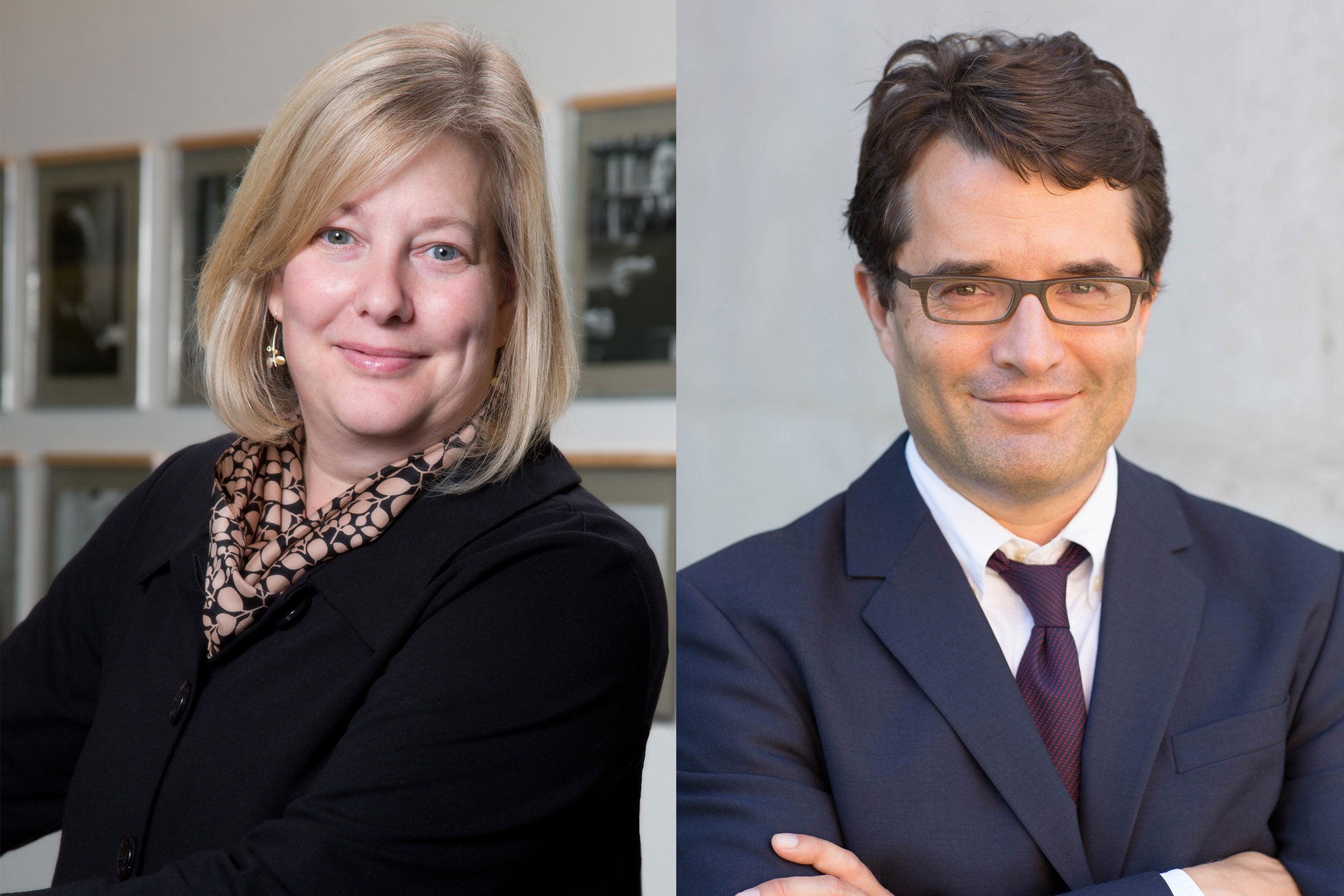At a time when policing, prosecutorial discretion, the death penalty, and criminal justice as a whole are under tremendous scrutiny in the United States, a new initiative at Harvard Law School seeks to analyze problems within the U.S. criminal justice system and look for solutions. Carol Steiker ’86, the Henry J. Friendly Professor of Law, and Alex Whiting, professor of practice, are directing the school’s new Criminal Justice Program of Study, Research, and Advocacy. A recent gift has allowed the school to expand the mission of its existing Criminal Justice Program of Study beyond advising students to include research and policy advising in partnership with criminal justice agencies and NGOs. In early December, we spoke with Steiker and Whiting about the new initiative.
Why is the Criminal Justice Program of Study, Research, and Advocacy being created?

STEIKER: It is clear that the American criminal justice system is in deep trouble right now, facing many really significant challenges. Harvard Law School has tremendous resources in its faculty and students, and its ability to convene. This is a place that can promote needed law reform in this crucial area.
WHITING: One of the challenges of criminal justice reform is that there are so many actors involved— prosecutors, defense lawyers, policy actors. The law school is a place that can bring together many of those actors, and in addition, contribute with analysis, research and forward leaning thinking about how to solve some of these problems.
It’s not an accident that we get this gift at this time when the criminal justice system is facing enormous problems. We’re at a moment where there is a lot of debate about it, and a lot of recognition across the country that something has to be done. And the idea of the program is to create a way for Harvard to participate.

STEIKER: Just consider the headlines, this past week. Kamala Harris [California’s attorney general] announced that she is going to appeal the decision to defend California’s death penalty statute against a decision by a federal district court judge declaring it unconstitutional. [Mayor]Bill de Blasio announced that New York City is going to have a completely new approach to mentally ill people in the criminal justice system. Ferguson continues to dominate the airwaves along with the public outcry in the Eric Garner case—yet another instance in which the death of an unarmed black man at the hands of a police officer failed to yield a grand jury indictment.
This is just a random sample of news this week. It’s extraordinary the breadth and depth of the problems.
WHITING: And the consensus is that things need to be done. So that’s where there’s an opportunity for Harvard to get involved, in terms of helping to convene, to bring parties together for these discussions, and helping to contribute to the thinking about some of the changes that need to happen.
How are you thinking about the timeline for the program, its rollout and direction?
STEIKER: This is a planning year, so everything is on the table. There will definitely be a curricular component. We’re going to teach a full-year seminar starting in Fall 2015. The students in the course will partner with organizations outside the academy, working on criminal justice reform projects.
We have yet to decide whether we’ll emphasize research, or whether we’ll aim judicially, or legislatively, or whether we’ll focus more on events that we convene. We’ll probably do some mix of these in any given year. This year we’ll be hiring an executive director. We will also be hiring a post-graduate fellow, which will be a way to involve a recent law graduate in the work of the program. I think it will be a great stepping-stone for that person and an inspiration to current students.
What will the program offer this academic year to students?
STEIKER: This year we’re ramping up through the existing Criminal Justice Program of Study. The program has two wonderful Fellows, 2Ls Coby Loup and Nate Wood. They have already helped to organize several events, including a criminal justice retreat for interested students, where faculty and students came to discuss criminal justice issues and activities at the law school. They did a panel with students who worked in criminal justice positions over the summer to advise current 1Ls and 2Ls about how to look for criminal justice summer jobs. This fall we invited Bill Keller, the former New York Times editor, who left the Times to start the Marshall Project, a journalism project devoted solely to criminal justice issues. And we just held a program with the Vera Institute of Justice, which brought together prosecutors, defense lawyers, academicians, and judges together to talk about issues. [Read “District attorneys discuss Vera Institute findings on racial disparity in criminal cases (video)]
Professor Steiker, as a death penalty expert, and Professor Whiting, as a prosecutor in the U.S. and in international courts, how are your own experiences shaping the program?
STEIKER: I think I’m coming at this more as a student and scholar of the general criminal justice system, rather than as a scholar of the death penalty in particular. Although certainly in studying that piece of the American criminal justice system, all the related problems involving race and quality of counsel, and local variations, and institutional inadequacies are on full display.
But in all of my criminal classes, including Capital Punishment, drawing on my former experience as a public defender in D.C., I’m very aware of, and concerned about, broader criminal justice issues, such as mass incarceration—the U.S. is now the leading incarcerator in the world. I see this as a program with bigger game—the whole criminal justice system. We have to think about what kinds of issues Harvard can be most effective at helping to address, and also what we want our students to learn, and the skills we want them to develop while they’re here.
WHITING: I come at this from having been a prosecutor here and abroad for a total of 18 years, and then having taught about prosecution here at the law school. It’s true that the story of prosecutors in the last 20 years in this country is that they’ve gained an enormous amount of power. But, at the same time, I think prosecutors see that things aren’t necessarily working, and that mass incarceration is not, ultimately, the solution to the criminal justice problem. In these last years, there have been efforts to try to shift to a different way of thinking, beyond maximum sentences, and long terms of imprisonment, to more problem solving, more partnering with other actors in the community.
I also have been influenced by my exposure to criminal justice systems in other parts of the world, and worked with prosecutors and investigators from lots of other countries that take a very different approach to the criminal justice problem.
You can’t simply transplant approaches from one country to another. But, at the same time, you can’t help seeing the difference, and it at least should wake you up to the possibility that maybe there are other ways of doing things, and other approaches that we should be considering.
You both seem very energized by this project.
WHITING: It’s a really fantastic opportunity—and an incredible moment in our field. After a long period where there was no discussion about new approaches and solutions, now there is that discussion.
STEIKER: Even in this moment of incredible political deadlock on Capitol Hill, there is surprisingly bipartisan interest in this problem. I think part of it is that the tremendous cost of the criminal justice system has got some fiscal conservatives concerned. And, a certain segment of the religious right has concerns about capital punishment, and the extreme harshness and non-rehabilitative focus of our criminal justice system, which denies redemption, something that many with serious religious commitments value. So there’s room for bipartisan change here that we have not not seen in earlier decades.
***
Carol Steiker’s work ranges from substantive criminal law to criminal procedure to institutional design, with a special focus on issues related to capital punishment. This year, she is the Rita E. Hauser Fellow at the Radcliffe Institute for Advanced Study and is working on a book about the past half-century’s experiment with the constitutional regulation of capital punishment in America. She is writing the book with Jordan M. Steiker of the University of Texas School of Law, who is her brother and frequent collaborator in scholarship, litigation, and law reform. After clerking for Judge J. Skelly Wright of the D.C. Circuit Court of Appeals and Justice Thurgood Marshall of the U.S. Supreme Court, she was a staff attorney for the Public Defender Service for the District of Columbia. She has worked on pro bono litigation projects on behalf of indigent criminal defendants, including death penalty cases in the U.S. Supreme Court.
Prior to joining the faculty as a professor of practice, Alex Whiting was in the Office of the Prosecutor at the International Criminal Court in The Hague where he served first as the Investigations Coordinator, overseeing all of the investigations in the office, and then as Prosecutions Coordinator of all of the office’s ongoing prosecutions. He was a trial attorney with the International Criminal Tribunal for the Former Yugoslavia in The Hague, and he served as a U.S. federal prosecutor for ten years, first with the Criminal Section of the Civil Rights Division in Washington, D.C., and then with the U.S. Attorney’s Office in Boston, where he focused on organized crime and corruption cases. A graduate of Yale Law School, Whiting clerked for Judge Eugene H. Nickerson of the Eastern District of New York.
